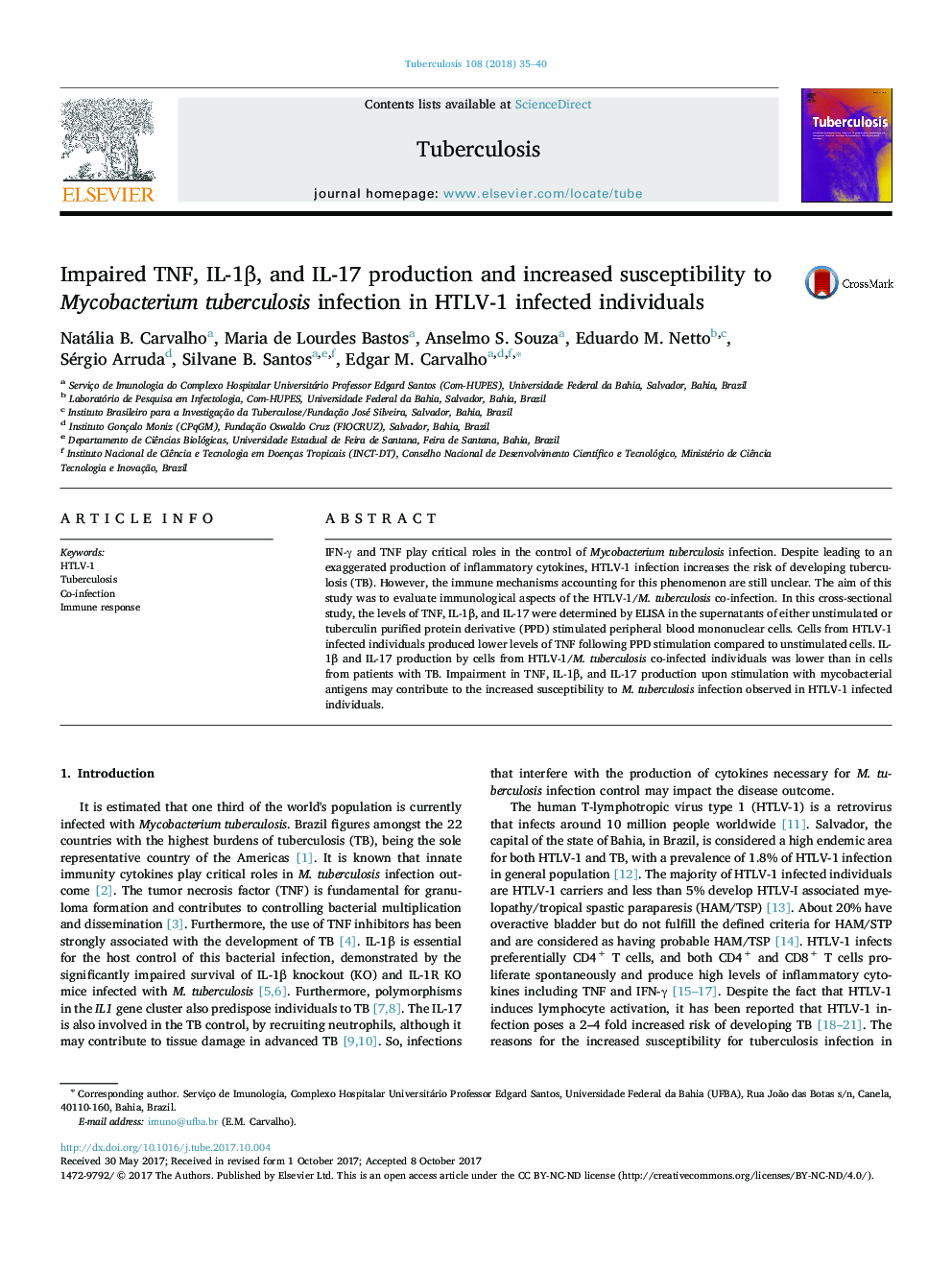| Article ID | Journal | Published Year | Pages | File Type |
|---|---|---|---|---|
| 8485175 | Tuberculosis | 2018 | 6 Pages |
Abstract
IFN-γ and TNF play critical roles in the control of Mycobacterium tuberculosis infection. Despite leading to an exaggerated production of inflammatory cytokines, HTLV-1 infection increases the risk of developing tuberculosis (TB). However, the immune mechanisms accounting for this phenomenon are still unclear. The aim of this study was to evaluate immunological aspects of the HTLV-1/M. tuberculosis co-infection. In this cross-sectional study, the levels of TNF, IL-1β, and IL-17 were determined by ELISA in the supernatants of either unstimulated or tuberculin purified protein derivative (PPD) stimulated peripheral blood mononuclear cells. Cells from HTLV-1 infected individuals produced lower levels of TNF following PPD stimulation compared to unstimulated cells. IL-1β and IL-17 production by cells from HTLV-1/M. tuberculosis co-infected individuals was lower than in cells from patients with TB. Impairment in TNF, IL-1β, and IL-17 production upon stimulation with mycobacterial antigens may contribute to the increased susceptibility to M. tuberculosis infection observed in HTLV-1 infected individuals.
Related Topics
Life Sciences
Immunology and Microbiology
Applied Microbiology and Biotechnology
Authors
Natália B. Carvalho, Maria de Lourdes Bastos, Anselmo S. Souza, Eduardo M. Netto, Sérgio Arruda, Silvane B. Santos, Edgar M. Carvalho,
